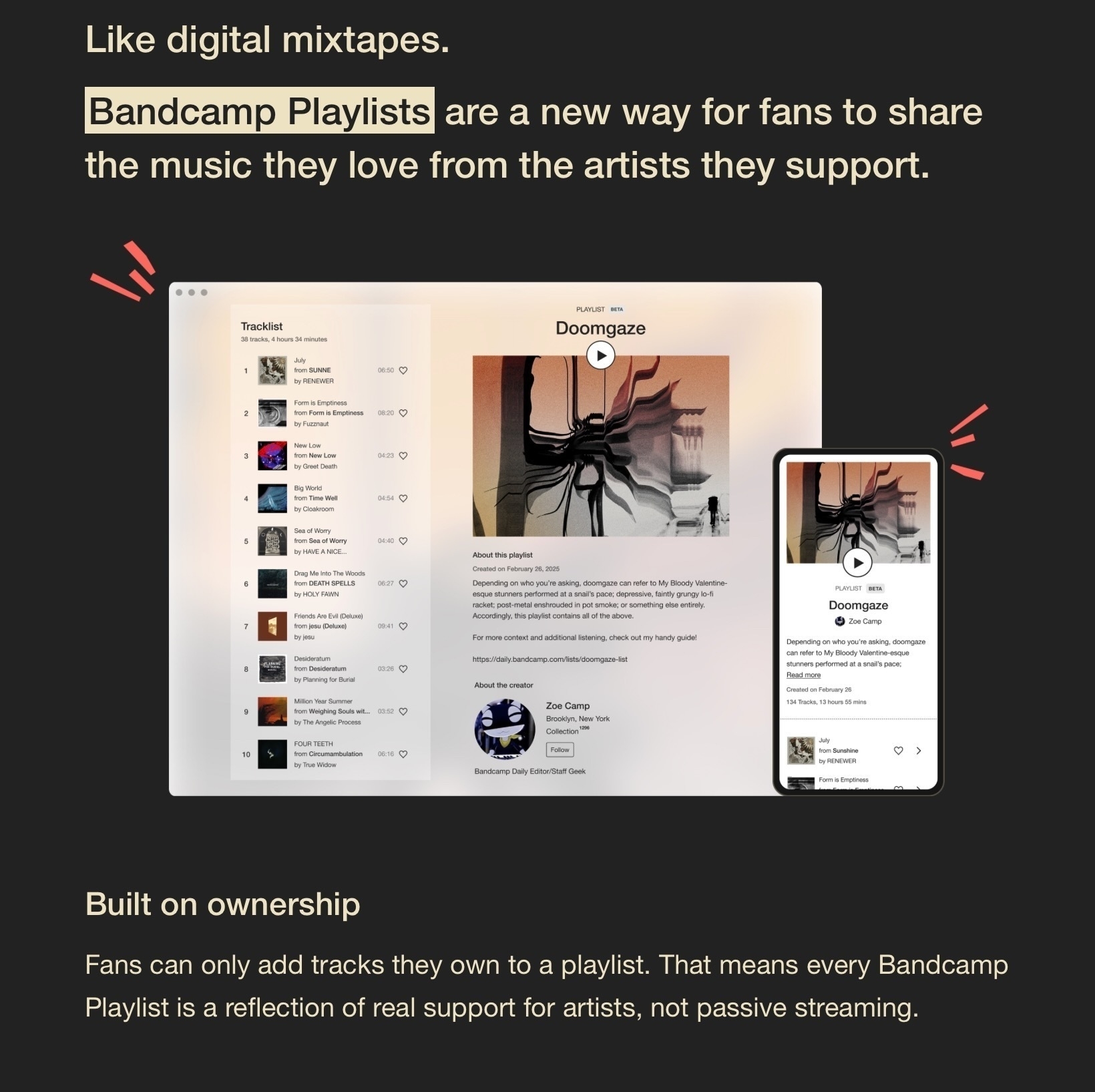Few realize that Sabbath’s “Iron Man” was originally called “Iron Bloke.”

Few realize that Sabbath’s “Iron Man” was originally called “Iron Bloke.”

Brothers Evan and Quinn Seurkamp, who primarily make up the Ohio band The Laughing Chimes, call upon the hauntings of the Appalachian foothills of their native state as inspiration for their gothic jangly post-punk. There is a wistfulness appropriate to the rust belt and its faded glory that pervades their album Whispers in the Speech Machine.
Hunter Tice (a man after my own heart) writes for Christ and Pop Culture about the importance of physical media in a world that is increasingly detached from the material when engaging with art.
An increasing reliance on digital micro-conveniences results in digitality becoming a powerhouse vehicle of mindless consumption and physical disengagement. As our culture endorses digital consumption in more facets of life, it inherently devalues the significance of physicalness. That has incredible implications on how society functions, including how we perceive the world of media and artistic expression.
Bandcamp is finally adding a feature that I, and other like-minded enjoyers of music have been wanting for some time. The new ability to create playlists feels like it aligns with the ethics of the service, which is mostly a good thing, but the focus may be a bit too heavy in that area.1 Bandcamp describes the feature as, “Like digital mixtapes.” There’s not much need to describe how it works, everyone is familiar with the concept of playlists and this feature appears to do exactly what it says on the tin.

I couldn’t resist the temptation to break out my cassettes again. Time to give this puppy a spin.
Thanks @jack!

My wife suggested to my son that he watch Lars And The Real Girl. I don’t think he made it through the whole thing and he was quite critical. I don’t think he’s ready for a film like Pumpkin.
Mozilla made a surprise announcement today that they are closing the Pocket read-it-later service. With nothing but a bland, corporate statement to go on, I imagine users have a fair amount of confusion about the move. I was actually looking at the Pocket entry on the App Store earlier in the day to see if it had been updated lately. I always had dreams of the service/app being improved, so I could go back to using it with a Kobo, which is a quite delightful combo. I had a Kobo a few years ago, and the sync with Pocket, while it could use a few features (like highlight sync), was key for me. I probably read more articles than books on the device. I kept this option in the back of my mind for a possible switch back.
I would have been extremely frustrated if I had bought another Kobo under the assumption that I could fulfill my use case of synchronizing with my saved articles from Pocket.
Richard Beck writes about his experience with Bram Stokers' novel Dracula.
Bram Stoker’s Dracula is a very Christian novel. I would even say that Dracula is one of the greatest Christian novels of all time. Christianity suffuses the book. Faith is the air the novel breaths. Fans of the novel, of course, are aware of this, but the pious devoutness of the story caught me by surprise.